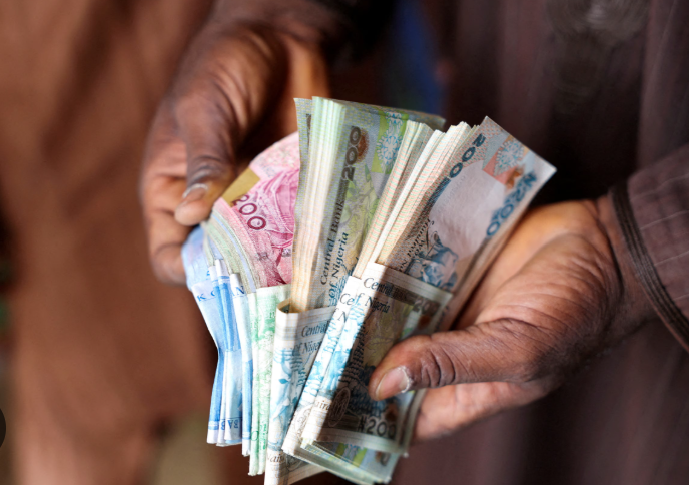By Isaac Atunlute
“Seventy thousand naira is a fortune until you get to the market,” bemoans Patrick Chibueze, 35, amid the bustling chatter of traders. “By the time I buy food and pay transport fares, the money left is very little.”
Chibueze’s frustration reflects a widespread feeling among Nigerians, who have had to weather steep market prices despite an increase in the national minimum wage. In 2024, following a series of labour strikes and protracted negotiations, the federal government raised the minimum wage to ₦70,000 from ₦30,000.
While many hailed the wage hike as a significant step towards easing the economic burdens on Nigerian workers, questions remain about whether it’s enough to match the soaring cost of living.
A couple of factors are to blame for this, reckons Ajayi Esther, an economic analyst. “The reinstitution of the fuel subsidy and the sudden drop in purchasing power are unmistakable indicators that the economy is struggling.”
Raising wages without addressing inflation, Esther warns, can backfire. “You cannot have wages chasing inflation; it is a vicious circle and ends up hurting the workers and the employers more.”
Nigeria’s inflation rate reached a 28-year high of 33.95% in May 2024, tightening the financial strain on citizens. Inflation was fuelled by a series of reforms, including the removal of the fuel subsidies and devaluation of the naira–measures that have significantly raised the cost of living.
Despite the wage increase, many workers argue that ₦70,000 is far too little to cater to basic needs. Meanwhile, state governments have reacted unevenly to the federal directive.
Some states, such as Bayelsa and Lagos, have agreed to pay more than the minimum wage, while many others are yet to comply, citing financial constraints. This inconsistency has cast doubts on the uniform implementation of the policy across the country.
The private sector is also under pressure. Small and medium-sized businesses (SMEs)–the backbone of Nigeria’s economy–are struggling to absorb the increased wage bill.
Experts agree that while increasing the minimum wage is a move in the right direction, it should be part of a broader economic strategy. This blueprint should include measures to curb inflation, invest in infrastructure, and diversify the economy to reduce Nigeria’s overdependence on oil revenues.
“Increasing the minimum wage without stabilising inflation is pouring water in a leaking basket,” says Esther. “We need a comprehensive package of reforms beyond salary increments. What Nigerians need is money that will retain value based on working infrastructure and job-generating areas like the agricultural and ICT sectors.”
As Nigeria wrestles with these economic complexities, the fundamental question remains: Is the minimum wage enough to provide citizens with a decent standard of living?
To workers like Patrick Chibueze, the answer is not limited to the wage alone. “It’s a good starting point, but we don’t need a bigger pay cheque alone. We need an economy that works for all of us.”
In Nigeria, the recent increase in the national minimum wage to ₦70,000 from ₦30,000, resulting from labor strikes and negotiations, aims to alleviate the economic strain on workers. However, this hike poses questions regarding its sufficiency amid the rapidly rising cost of living. Economic analyst Ajayi Esther highlights the dangers of wage increases outpacing inflation, which recently rose to a 28-year high of 33.95%, exacerbated by the devaluation of the naira and removal of fuel subsidies.
Despite the wage rise, many Nigerians find it insufficient to meet basic needs, with state compliance with the wage increase uneven and small to medium-sized enterprises (SMEs) facing difficulties in adjusting to higher wage bills. Experts assert that while the wage hike is beneficial, it's inadequate without a comprehensive economic reform that tackles inflation, invests in infrastructure, and diversifies the economy beyond oil dependence. As Patrick Chibueze, a Nigerian worker, observes, a functional economy that serves all citizens, rather than an isolated wage increase, is essential for ensuring a decent standard of living.






